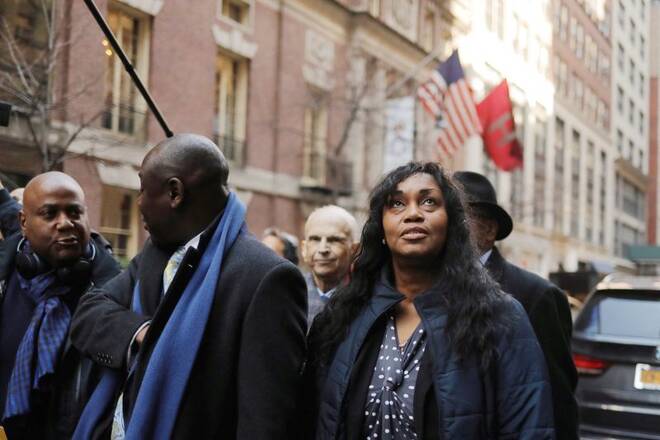Advertisement
Advertisement
Harvard must face lawsuit over ‘horrific’ slave photos -Massachusetts court
By:
By Nate Raymond BOSTON (Reuters) - Massachusetts' highest court on Thursday ruled that Harvard University can be sued for mistreating a descendent of slaves who were forced to be photographed for an 1850 study by a professor trying to prove the inferiority of Black people.
By Nate Raymond
BOSTON (Reuters) -Massachusetts’ highest court on Thursday ruled that Harvard University can be sued for mistreating a descendant of slaves who were forced to be photographed in 1850 for a study by a professor trying to prove the inferiority of Black people.
The Massachusetts Supreme Judicial Court ruled Harvard’s “horrific, historic role” in creating the images meant it had a duty to respond carefully to Tamara Lanier’s requests for information about them, which she said the university failed to do.
But the court said the Ivy League school does not need to hand over the photos to Lanier, concluding that despite the “egregious” circumstances the Connecticut woman had no rightful property interest in them.
The decision partially revives a lawsuit she filed in 2019. Lanier and her attorneys, Ben Crump and Josh Koskoff, in a joint statement said the “historic” ruling would allow her to “continue this legal and moral battle for justice.”
Cambridge, Massachusetts-based Harvard said it was reviewing the decision.
The images depict Renty Taylor and his daughter Delia, slaves on a South Carolina plantation who were forced to disrobe for photos taken for a racist study by Harvard Professor Louis Agassiz.
Justice Scott Kafker wrote that Harvard had “cavalierly” dismissed Lanier’s claims of an ancestral link and disregarded her requests for information about how it was using the images, including when the school used Renty’s image on a book cover.
Kafker said Harvard’s conduct meant a jury could reasonably determine it recklessly caused Lanier to suffer emotional distress through its “extreme and outrageous conduct.”
“Harvard’s past complicity in the repugnant actions by which the daguerreotypes were produced informs its present responsibilities to the descendants of the individuals coerced into having their half-naked images captured in the daguerreotypes,” he wrote.
Justice Elspeth Cypher, in a concurring opinion, proposed a new legal claim Lanier could pursue to recover the images, saying her allegations if proven “demand a full remedy and nothing less.”
(Reporting by Nate Raymond in Boston; Editing by Alexia Garamfalvi, Bill Berkrot and David Gregorio)
About the Author
Reuterscontributor
Reuters, the news and media division of Thomson Reuters, is the world’s largest international multimedia news provider reaching more than one billion people every day. Reuters provides trusted business, financial, national, and international news to professionals via Thomson Reuters desktops, the world's media organizations, and directly to consumers at Reuters.com and via Reuters TV. Learn more about Thomson Reuters products:
Did you find this article useful?
Latest news and analysis
Advertisement
